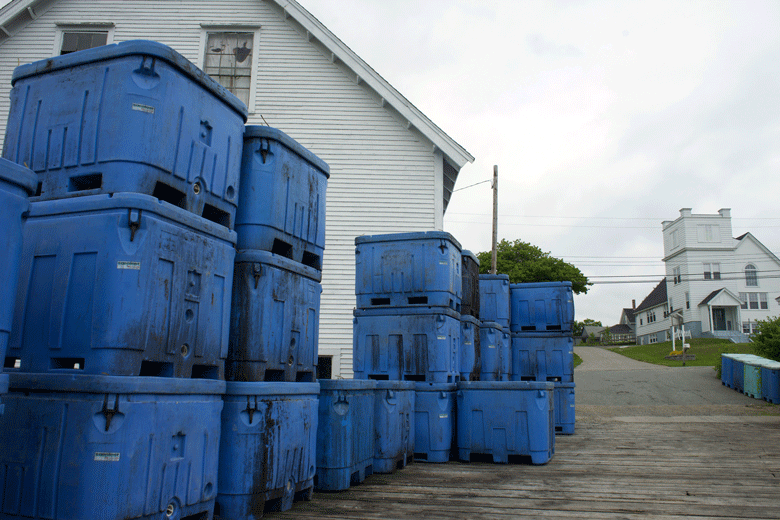The harvesting of lobster in Maine and beyond “continue[s] to meet the criteria of our Gulf of Maine Responsibly Harvested program,” the Portland-based nonprofit Gulf of Maine Research Institute asserts in a report issued in September.
The report aims for a science-based approach in analyzing the clash between federal protection of North Atlantic right whales and the lobster fishery, whose harvesters maintain they pose little threat to the marine mammals.
The whales, which are protected under the federal Endangered Species Act and whose population numbers fewer than 350, “face extinction unless human-caused mortalities, including ship strikes and entanglements in fishing gear, are considerably reduced,” the report states.
“With so many traps in inshore waters, it leads to elevated entanglement risk…”
The context, though, is that a warming climate is “changing the habitat where whales normally feed, causing the whales to migrate through different areas seeking food,” which increases the likelihood of ship strikes and entanglement. Food also is less readily available due to a changing climate.
Fixed-gear fisheries, like lobster traps left on the bottom with vertical surface lines, “pose the greatest entanglement risk to right whales.” In the Northeast, the lobster and Jonah crab fisheries account for 93% of fixed-gear buoy lines in right whale habitats, the report notes.
On the other side of the conflict is the substantial economic sector that is lobstering, estimated at $1 billion in Maine, if ancillary businesses are included.
The fishery, “stretching from the Canadian border to Cape Cod, supports thousands of families and communities,” the report states, and in the past five years, whale deaths mostly have been confined to the Gulf of St. Lawrence and south of Cape Cod.
But it is difficult to determine where a whale first was entangled by rope and gear.
Right whales have been seen within three miles of the Maine coast, the report states, though those incidents are rare. Still, “with so many traps in inshore waters, it leads to elevated entanglement risk…”
Given this confluence of factors threatening the whales, NOAA, which regulates fishing, published an updated biological opinion in May 2021. That resulted in rules for lobster and Jonah crab harvesting which were put in place early this year and were expected to reduce the risk to right whales by 60%. Those rules include closing a portion of the Gulf of Maine to lobstering, adding additional traps for each vertical line, and adding weaker rope or links designed to break if a whale become entangled. Gear also must be marked to indicate its origin.
Lawsuits from both lobstering advocates and whale protection advocates followed, with no changes coming from the courts—yet. In response to a suit brought by the Center for Biological Diversity, a judge ruled NOAA’s regulations “do not go far enough or fast enough,” the report notes, but a prescription for NOAA to address that failure has not yet come.
“Regardless, it is likely that more regulations are coming and will have to be implemented on a faster timeline,” the report concludes, and it “will present an existential challenge for the fishing industry.”
Switching to “ropeless” fishing gear is a possible solution, but GMRI’s report asserts that this technology is not yet commercially viable.
“Fishermen have abided by regulations for many years to ensure they are responsibly harvesting lobster and other species in the Gulf of Maine,” the report concludes, “but their livelihoods are being impacted by regulators doing everything possible to prevent [right whales] from going extinct.”
Lobster, along with monkfish, pollock, white hake, and winter skate harvested in the Gulf of Maine meet GMRI’s responsibly harvested criteria “because they are abundant and the existing rules are sufficient to maintain healthy populations of these species,” the report states. The health of another, mammalian species, though, may eclipse that good news.





